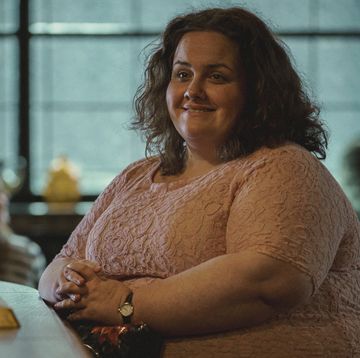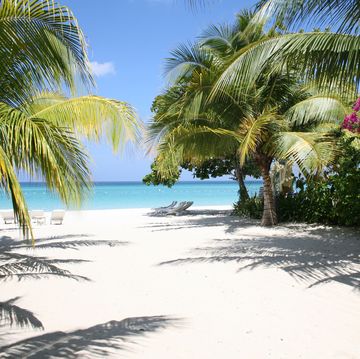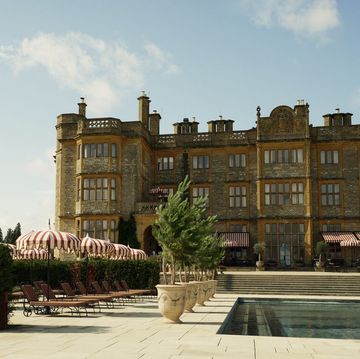The last few years seem to have inaugurated a new era in sexual identity politics, one where rejecting sexual labels—lesbian, gay, bisexual, etc.—has become more radical than claiming them. In May of 2015, provocative songstress Miley Cyrus said: "I'm not hiding my sexuality. For me, I don't want to label myself as anything. We love putting people in categories, but what I like sexually isn't going to define me." A month later, Australian model, Cara Delevingne, currently dating the singer Annie Clark, known as St. Vincent, followed suit, revealing her sexual fluidity to Vogue, and her aversion to categories on Instagram: "STOP LABELING!!! START LIVING!!!" her tagline reads.
Three months later, publicity-shy actress Kristen Stewart echoed similar sentiments: "Google me, I'm not hiding," she said, referring to paparazzi shots that captured a romantic link between herself and her personal assistant, Alicia Cargile. "If you feel you really want to define yourself," she continued, "and you have the ability to articulate those parameters and that in itself defines you, then do it, but...I live in the fucking ambiguity of life."
Few could make the rigid identity politics of the '90s, the era in which I earnestly and resolutely affirmed my lesbianism, laboriously coming out to everyone I knew, seem more passé and uncool.
It took me more than a decade to quietly ascribe that culturally fraught term—lesbian—to myself, even longer to admit it to others. But finally, at 40 years old, through years of perpetual self-disclosure, the label feels as native to me as my own my own limbs. The thought of discarding it like an outdated dress feels more untethering than it does liberating, which is why I stumble on the thought that we've truly reached a new point in sexual liberation, where asserting an L, G, B, or T has grown obsolete. Are we really in the primordial stages of a post-coming out era? Or is this a fashionable way to stay in the closet? It is a step forward or a step backward?
***
The movement away from explicit labels is not more than just an anecdotal or celebrity-confined phenomenon. Over the last four years, Ellen Kahn, director of Children, Youth & Families at Human Rights Campaign, and her team have noticed a significant upswing in the number of young people both refusing labels and assuming "a bigger world of identities and descriptions." "This generation has a less rigid, less static sense of who they are," she noted, citing a 2012 HRC survey of more than 10,000 youths in which 15 percent chose their own words to define their orientations rather than checking the boxes for gay, lesbian, or bisexual.
Kahn doesn't see this new fluidity as a bad thing. "Part of the rejection of labels," Kahn surmises, "could be that they feel antiquated: too pathologized, too politicized, too boring." Kate Kendell, the executive director of The National Center for Lesbian Rights, who came into her lesbian consciousness in the '70s, agrees: "There is nothing inherently undermining in this…It's the age old story: Every generation makes adjustments to an identity narrative that feels right to them." Kahn adds: "That young people can identify in ways that feel more authentic to them is progress."
Christopher Lee Nutter, author of The Way Out: The Gay Man's Guide to Freedom No Matter if You're in Denial, Closeted, Half In, Half Out, Just Out or Been Around the Block, is not convinced, (as his subtitle might have indicated). Nutter famously came out in Details magazine in 1994, and is archly against casting this "trend" as progress. "What these youths are doing," he said, "is taking from the infrastructure that out gay people built for them and not giving back. By obfuscating their sexual orientations, they don't challenge hetero hegemony. Gay people would never have had an ounce of power if homosexuals had not come out—and in droves. That has not changed."
Legendary gay AIDS activist and author, Larry Kramer, whose entire political strategy hinged on the necessity of being out, sounded a similar note. The refusal to self-identify and the proliferation of identities, he believes, will weaken LGBT political power: "Having so many different groupings makes it increasingly impossible to take an adequate census count of how many gays there are," he wrote via email. "With numbers comes power, and splitting up so much weakens this power. How can we tell the world how many of us there are? I have long felt that our closetednesses and now our differently-defined groupings makes us as a population of gay people more vulnerable to our many enemies."
Nutter at 45 years old, and Kramer at 80, represent a generational schism that chafes against the millennial inclination to reject or complicate labels. Erin Mullin, a 25-year-old stage manager in New York City, understands the utility of mainstream identity categories, but aspires to a future where they are no longer necessary: "I know it sounds so naïve, but in my dream world, we are all just people who have a matrix of identities that are fluid." Until then, she calls herself "queer" because, she said, "it's the best coverall for my experience." She views "queer" as a kind of anti-label in the sense that it lacks specificity. It could mean you are LGBT, pansexual, gender queer, fluid, straight with gay sympathies, aromatic, asexual, etc.; the list is an endless configuration of new forms of tailor-made identities.
Twenty-nine-year-old Berlin-based artist Nicholé Velásquez, who doesn't define his sexuality or restrict his romantic possibilities to one sex or gender, doesn't think this cultural development is about rejecting labels. "The mark of postmodernity," he said, "has been toquestion labels of identification and promote newer and more inclusive realities."
The Self Evident Truths Project, an online gallery of nearly 10,000 individuals who dwell somewhere between hetero and homosexuality, vividly captures Velásquez's point. Through photographs, Tyler Renner, a 25-year-old gay man, works closely with queer artist i.O. Tillet Wright to break down the binaries that pit identities against one another and advocate for a more nuanced and expansive understanding of human sexuality. Their sitters, which have included Cara Delevingne, Transparent creator Jill Soloway, and Lily-Rose Depp (Johnny Depp's daughter), hail from 47 American states, and Renner says that he has witnessed firsthand "expanding and evolving views of sexuality, gender, sexual attraction, and identity that are challenging our social and linguistic categories in new important ways." He thinks "the rejection of labels [has to do with] the way they reduce, marginalize, and other people."
Like Renner, Ian Daniel, a 34-year-old documentarian, has had the opportunity to canvass our country's LGBT populations. With out actress Ellen Page, he co-hosts docuseries Gaycation. On the show, which premieres March 2 on Viceland, the duo travel to different parts of the United States, Japan, Jamaica, and Brazil to report on the state of LGBTQ identities in different cultural contexts. In a telephone interview with ELLE.com, Daniel said that the resistance to traditional labels is about young people "not wanting to be restricted by a term or a stigma. People are saying, 'I don't align with the binary.' They understand the limitations of language. And they want to self-describe, which is something we've not seen in our history."
But every iteration of this cultural phenomenon has a false sheen under Nutter's eye. "The reality on the ground," he said, "is that any person who is sexually attracted to the same sex and refuses to make a clear statement to that effect in the same way heterosexual people do is simply closeted or attempting to 'pass' by virtue of the fact that everyone is assumed to be straight."
The editor-in-chief of LGBT magazine The Advocate, Matthew Breen, also directs a skeptical eye toward the label-averse, especially when they're celebrities. "I understand that asserting an identity doesn't work for everybody. But," he cautioned, "it really works to make other people see us." Like Nutter, he takes exception with celebrities who make false equations between privacy and being forthright about their orientations, and like Nutter, argues: "If you're a public figure and you don't come out in a public context, you are not out. Saying, 'I'm not hiding, it's there for you to see if you want to,' is not the same as coming out." When asked if he saw a post-coming out era on the horizon, he laughed—he laughed a lot—and said: "No, not even close."
While that may indeed be true, I wonder if in the context of larger cultural and political developments, disclaiming labels and refusing to come out in the traditional sense seems a natural extension of the rights LGBT people have secured. Today, we can adopt children, serve openly in the military, marry, etc. For better or worse—depending on the value you ascribe to assimilation—we are more like straight people than ever before. Against this backdrop, it may seem less necessary to live by an "out and proud" ethos.
And yet, just the other day, when I got in a cab after a late night at work, my chatty taxi driver threw questions at me like punches, and eventually asked: "Are you married?" "Yes, I am," I said. "What does your husband do?" he asked. "She's a therapist," I said, and he went silent.
Originally by Steph Fairyington for ELLE.com












